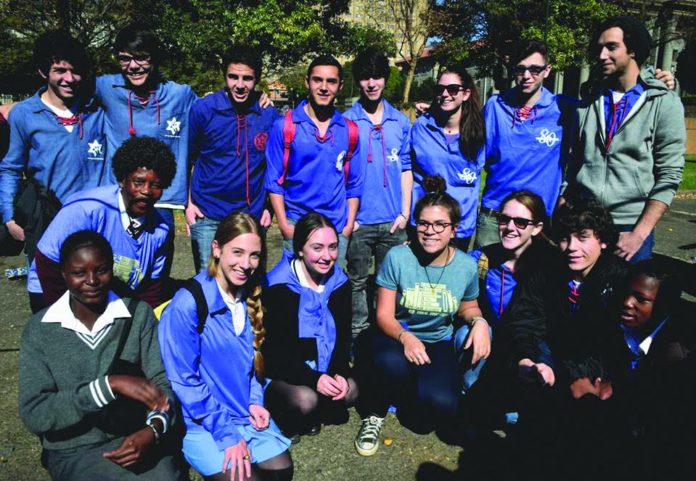 |
At the beginning of this year, Habonim’s Cape Town Ken (centre) decided to change the way we look at community involvement.
Within the Ken structure, the people responsible for arranging outreach events are said to be the ‘Roshei Meoravut’. If we translate the Hebrew word into English, we get an entirely different sense of what this portfolio actually means; instead of denoting ‘charity’, the word translates more accurately into ‘involvement’. We are thus aiming to change our focus from just giving charity to becoming more actively involved in the communities around us.
In order to do this, we have decided to concentrate on two things: finding out how we can address the fundamental needs of less privileged communities; and forming relationships with them that transcend the traditional ‘giver-receiver’ interaction.
The most important need we have identified is that of inadequate education. There is a vast discrepancy in the quality of education available to the wealthier people of this country in comparison to that afforded to the poor. One of the most important pillars of our drive to address this problem is our continued involvement in Ikamva Youth, an organisation that offers free tutoring to students in Nyanga, Khayelitsha, and other areas. A number of our chaverim volunteer their time on weekends and on weekday afternoons to tutor Maths, Science, English and Life Skills to learners. We also continue to build a relationship with Equal Education — a highly influential NGO that was started by former members of Habonim and has gone on to make an important impact on the struggle for better education.
It became apparent to us that as hard as we work with organisations like these, we were finding it very difficult to actually form real interpersonal relationships We decided that this difficulty could be coming from the language barrier, and therefore started an initiative to get our chaverim to start learning to communicate in isiXhosa. Ten chaverim have enrolled in a course that the Ken has put together with help from Equal Education and friends of chaverim who speak isiXhosa as a home language.
Our aims for the next year are not only to broaden the scope of our community involvement, but to form real and lasting friendships with non-Jews who do not speak English as their home language and come from different cultural backgrounds to us. Habonim Dror believes that this goes to the heart of ‘tikkun olam’ (repairing the world), and will make us not only better Jews, but also better South Africans.











